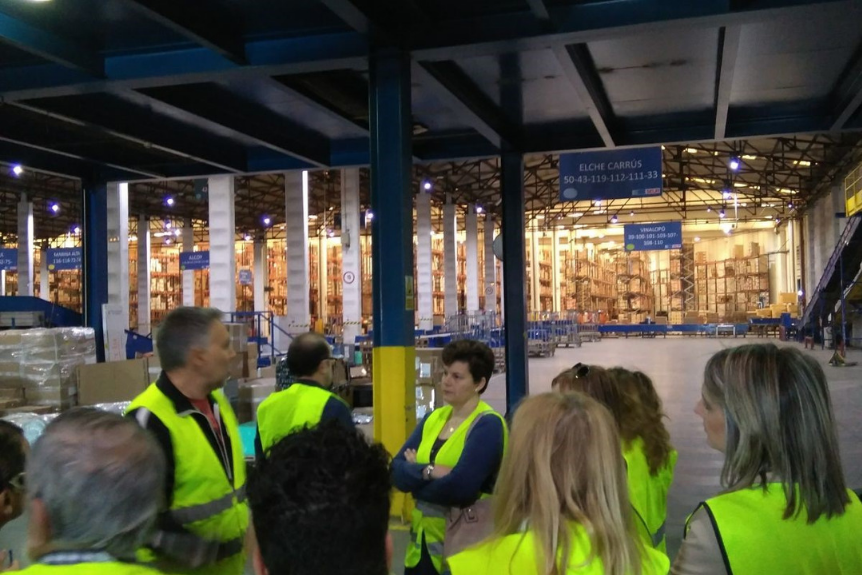About AIJU training
AIJU, the Technological Institute for Children’s and Leisure Products, is a non-profit body whose main objective is to promote research, safety and quality in the industrial field.
AIJU’s Training Department has a lengthy track record (since 1990) dedicated to continuous and occupational training. Its primary objective is to provide professionals from companies or other students with top-quality training so that they can obtain the best possible qualification with which to secure a job or improve their career. The AIJU Training Department provides companies with its experience, its infrastructure and a highly qualified staff in order to contribute, through a wide range of training services, to the best possible preparation of professionals from the corporate fabric.
Each year, AIJU organises more than two hundred training actions of different types, training over 2000 students through some 8000 hours of training in different subjects, with special emphasis on technological and corporate contents, with highly innovative content. These training actions include personalised training, courses, conferences or open sessions for different companies or types of students.

Wide range of training courses. Constantly updated and available on-line
The ultimate aim of our training actions is to offer companies in the toy-leisure-childhood sector and its auxiliary industry – plastics, moulds, etc. – human resources suitably trained in technology, processes and innovation, and in all those areas of earning and improvement updating that are relevant to such industries.
Our best guarantee is our clients and students. Each year, more than 2000 students visit our classrooms, students who let us have their opinion of the course, through a questionnaire, once they have finished each training activity. AIJU’s training activities receive an annual score of around 8.5 points out of 10. This high score confirms how satisfied our students and companies are with our training activity, and it also confirms a real improvement in the formation of these people within their professional environment.
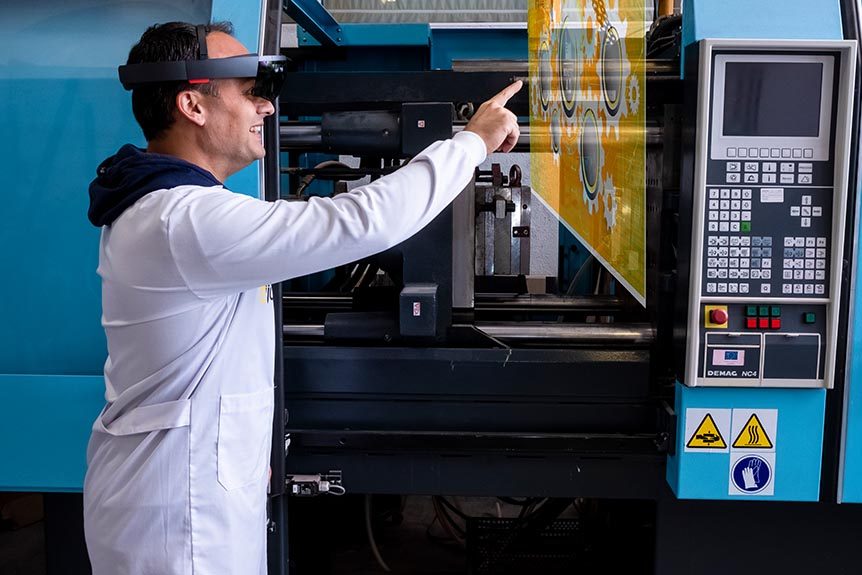
AIJU training infrastructures
- A team of experts in training with over 20 years’ experience and extensive knowledge of the industrial sector.
- Eight fully equipped classrooms able to teach 200 students at the same time.
- Two IT classrooms with more than 30 computers for individual student work.
- Three workshop classrooms for practical activities in technical-technological training actions.
- Our own platform with our own on-line training resources.
- A conference hall with a capacity for an audience of 120.
- An in-house teaching team of more than 40 highly qualified teachers in a range of subjects.
- A group of external teachers of the highest level to cover companies’ training needs and to respond to the most demanding and innovative requirements.
- Wide experience in training management and the use of training platforms.
- Agreements and collaborations with training entities from different points of Spain/Europe, in order to provide in-person training to companies in different locations.
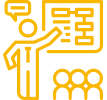
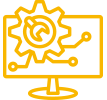
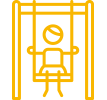


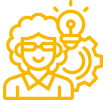

Training services
- Management of training in companies.
- Diagnosis of training needs.
- Elaboration and organisation of training plans.
- Provision of training actions.
- Assessment of results obtained from training.
- Training rebate management (State Foundation for Training in Employment)
- Calculation of available credit.
- Management of rebate documents.
- Advice and support in rebate management.
- Design of sectorial training plans.
- Identification of sectorial training needs.
- Planning, management, facilitation and assessment of sectorial plans.
- Training in fields that are not strictly corporate: training for unemployed people, collaborations with universities, vocational training, consumer training, etc.
- Job bank.
- Library and documentation. Enquiries regarding standards and diverse documentary resources.
Types of training courses
- Tailored training for companies.
- Open training for several companies.
- Rebated, subsidised or private training.
- Training for unemployed people.
- Collaboration with universities, master’s degrees, professional training centres, etc.
- Courses, seminars, workshops, conferences, congresses.
- Modalities: In-person, on-line, webinar.



Training in a range of subjects of a technical-technological nature
- Regulations and product safety: toys, childcare, playgrounds, food contact materials, chemical substances in consumer goods, etc.
- Plastic processing.
- Industrial processes and technologies.
- Comprehensive product development.
- Management systems.
- Process re-engineering.
- Management of innovation and R&D.
- CAE simulation.
- Graphic and industrial design.
- Prototyping, automatisation, robotics.
- ICT applications.
- Development of games and digital animations.
- Consumption, market and trends.
- Validation with users.
- Therapeutic leisure, etc.
Training in more transversal areas of knowledge
- Administration, offices, finance…
- Marketing, communication, sales, internationalisation…
- Skills, human resources, strategy…
- Organisation, production, maintenance…
- Logistics, warehousing…
- IT, office technologies, internet, social networks…
- Languages
- Entrepreneurship

AIJU is an entity that is inscribed/certified in the Registry of Professional Training Centres and Entities of the Community of Valencia (LABORA, formerly the SERVEF) and in the registry of centres of the State Employment and Training Service (SEPE).
AIJU is approved by Valencian Employment and Training Service (LABORA, formerly the SERVEF) to impart 16 Certificates of Professionalism and other specialisation courses designed to create industrial fabric.
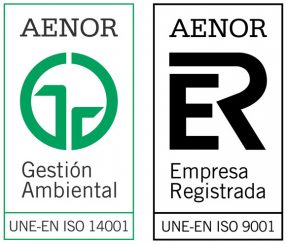
The AIJU training department guarantees the quality of its activities and their environmental sustainability by following the protocol of UNE standards for “Carrying out continuous and occupational training courses, and conferences”.
Certificates according to UNE EN ISO 9001:2015 y 14001:2015 standards.
At AIJU we believe it vitally important to promote the creation of industrial fabric, and that is why we work every day to come up with new educational offers and custom solutions that allow companies to improve the training of their most important resource, their human capital.
“SHAPING AND TRAINING OUR FUTURE…”
Nowadays training is not a unique and initial stage in a person’s life, as it has been for many years, and therefore the “Training-Work-Retirement” scheme of things has been left behind. The accelerated obsolescence of knowledge in our time, forces companies and workers to be and to remain constantly up to date, to improve the competitivity of the former and to continuously update of the professional skills of the latter, so that they can successfully face the changes in the labour market.
The close relationship between economic and technological development and investment in and planning of education and training is notorious, and this training must meet companies’ real current and future needs because the increasingly changing models of competitivity and technological processes are constantly demanding different, more flexible and adaptable skills. Companies and workers need to keep up to date with changes if they are to survive in this competitive world, and, therefore, they need to constantly update their abilities and skills.
The globalisation of markets, and the emergence of new technologies require companies to continuously invest in their most important resource: their human capital. Knowledge is a production factor that has a positive impact on competitivity, not to mention the ability to innovate, a key element in the economy of knowledge.
Training workers also has a profound social meaning, given that it increases their employability, their opportunities to obtain a better salary, and the generation of new jobs as a result of the growth of companies.
EXTRACT FROM THE WHITE PAPER ON THE IN-PLANT TRAINING SYSTEM, CEOE, 2017
